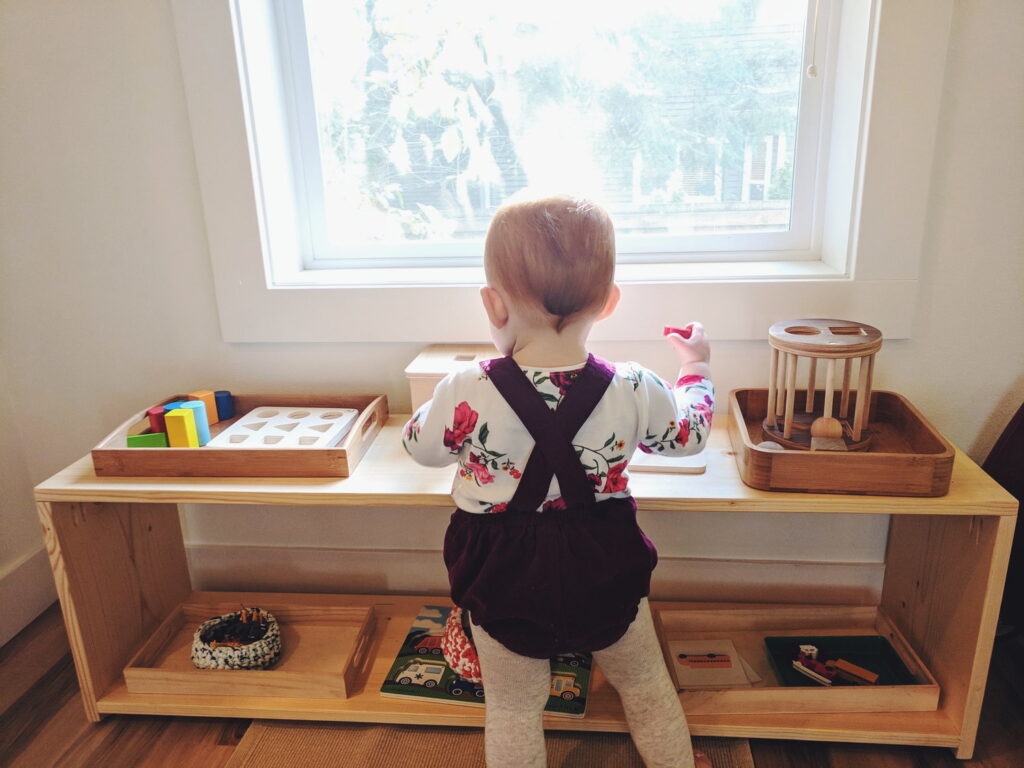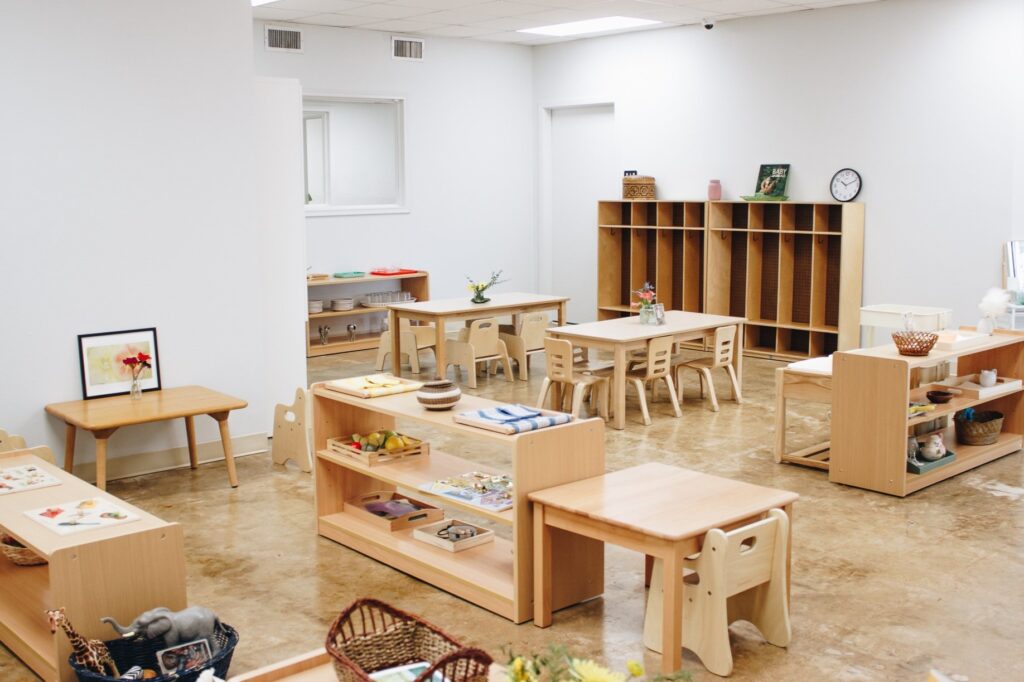It was lovingly created by Maria Montessori, an Italian physician, and educator who has left behind a wonderful legacy of her dedication to childhood education that we are trying to encourage.
We often get asked about what the Montessori Method entails. Below you’ll find a brief explanation and links to find out more!
In a nutshell, raising your child with a Montessori focus encourages self-guided, hands-on learning. The freedom offered through this type of self-guided play is not a free-for-all with a disorganized or unrestricted situation. In fact, through the Montessori Method, everything is so carefully considered and guided. Play can be guided by what you have available and ready for your children.
“… the child’s individual liberty must be so guided that through his activity he may arrive at independence … the child who does not do, does not know how to do.” —Maria Montessori
Prepared Environment
A phrase often heard when discussing the Montessori Method is a prepared environment. An environment can be designed to encourage learning and have accessibility for the child that maximizes opportunities for independence and concentration. Once your children develop trust in their own abilities, they will continue to progress and seek out what else they can accomplish. This inspires a life-long love of doing and learning!

Children learn naturally in an environment where they have access to the right tools. By careful observation of your child, you can prepare the environment specifically to their needs. This can include lower shelves, appropriately sized table/chairs, easy-access clothing, and more. This environment should have the right tools readily available without overwhelming your child with options.
“Education is a natural process carried out by the human individual, and is acquired not by listening to words, but by experiences in the environment.”—Maria Montessori
Practical Skills
The environment can encourage that their activities are purposeful ones, where they learn practical skills. What are practical skills? They are skills involved in everyday challenges that get repeated. By learning tactile manipulation, pouring, stacking and more they will be able to master the motion for necessary skills.
Some of these practical skills are related to them caring for themselves such as getting dressed and washing their hands. Others emphasize caring for the environment by watering plants or setting a table. These skills help develop concentration, confidence, responsibility, coordination, and independence.
“The exercises of Practical Life are formative activities, a work of adaptation to the environment. Such adaptation to the environment and efficient functioning therein is the very essence of a useful education.”—Maria Montessori

Treating Every Child as an Individual to Allow Independence
Another key element to Montessori focus is the lack of comparison to other children and when they are able to do certain tasks. There is no ’right timing’ other than whatever timing is right for each individual child! Every child is different, which means there is no right or wrong when it comes to how they learn and progress.
By providing your child with the accessibility to be independent you are allowing them to explore their surroundings and educate themselves at their own interest level and pace.
“Our goal with developing Montessori furniture is to help parents create spaces that lead to creative independence and confidence by making beautiful pieces that work in the home, daycare, and school, no matter if you practice Montessori methods or are just looking for safe and sturdy wood furniture for your family.”
Here is a link for our Montessori products best suited for the home.

